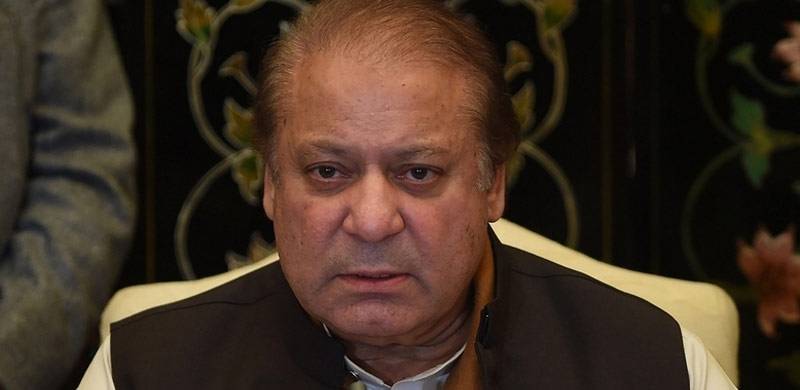
The Lahore High Court has granted former prime minister Nawaz Sharif post-arrest bail allowing him to seek medical treatment considering the seriousness of his illness. The judgement was given by a two-member bench consisting of Justice Sardar Ahmed Naeem and Justice Ali Baqar Najafi.
The petition, seeking his bail on medical grounds for treatment either in Pakistan or abroad, was made by Pakistan Muslim League-Nawaz (PML-N) President Shahbaz Sharif.
Through the petition, Nawaz Sharif sought his release purely on medical grounds in the inquiry pertaining to the allegations of corruption with respect to the Chaudhry Sugar Mills Case.
Underlying health conditions
The Special Medical Board of the Services Hospital has stated that Nawaz Sharif has severe existent co-morbid conditions like, amongst others, diabetes, hypertension, renal and heart disease. The board maintained that the low platelet count had added to the seriousness of the nature of his illness.
More importantly, Nawaz Sharif’s counsel informed the court that the former prime minister had undergone eight separate heart procedures between 2003 to 2017, with an open-heart surgery in 2011.
Recent health complications
On the night between October 24 and 25, Nawaz experienced an episode of chest pain, which radiated to both of his arms. Moreover, his platelets had declined to 6,000 per micro-liter. The board opined that the increase in platelets through platelet therapy could worsen his unstable angina.
Moreover, it stated that anti-platelet therapy could be resumed once the platelet-count reached 30,000 while travel would be possible when the count reached 50,000.
The court noted that it understood that the condition of the petitioner was serious and precarious, and that there was no improvement in his platelet-count. Moreover, it observed that the petitioner was a senior and sick citizen who was physically handicapped. It added that medical reports suggested the seriousness of the disease, hence the petitioner needed treatment in a conducive environment, free from pressure and with full peace of mind.
Treatment for multiple diseases
The court in its judgment stated that the ailment could not be treated in jail, since he was suffering from multiple chronic/acute diseases, which the court said reminded it of the following verses of Mushafi:
Mushafi ham to ye samjay thay k hoga koi zakham,
Par teray dil may buht kaam rafu ka nikla
Invocation of Article 9 of constitution
Considering his medical condition, the court observed that the petitioner needed to be treated outside jail. In this regard, the court invoked Article 9 of the constitution which says that ‘no person shall be deprived of life, or liberty save in accordance with law’.
Use of precedent
Moreover, the court stated that the under-trial prisoner should be allowed to avail medical facility in a hospital or in the country of his choice to prevent a further deterioration in his health. In this regard, the court relied on the Sharjeel Memon vs National Accountability Case.
Considering the aforementioned, the petitioner was granted post-arrest bail on medical grounds. The court subjected the bail to bonds in the sum of Rs10 million.
The petition, seeking his bail on medical grounds for treatment either in Pakistan or abroad, was made by Pakistan Muslim League-Nawaz (PML-N) President Shahbaz Sharif.
Through the petition, Nawaz Sharif sought his release purely on medical grounds in the inquiry pertaining to the allegations of corruption with respect to the Chaudhry Sugar Mills Case.
Underlying health conditions
The Special Medical Board of the Services Hospital has stated that Nawaz Sharif has severe existent co-morbid conditions like, amongst others, diabetes, hypertension, renal and heart disease. The board maintained that the low platelet count had added to the seriousness of the nature of his illness.
More importantly, Nawaz Sharif’s counsel informed the court that the former prime minister had undergone eight separate heart procedures between 2003 to 2017, with an open-heart surgery in 2011.
Recent health complications
On the night between October 24 and 25, Nawaz experienced an episode of chest pain, which radiated to both of his arms. Moreover, his platelets had declined to 6,000 per micro-liter. The board opined that the increase in platelets through platelet therapy could worsen his unstable angina.
Moreover, it stated that anti-platelet therapy could be resumed once the platelet-count reached 30,000 while travel would be possible when the count reached 50,000.
The court noted that it understood that the condition of the petitioner was serious and precarious, and that there was no improvement in his platelet-count. Moreover, it observed that the petitioner was a senior and sick citizen who was physically handicapped. It added that medical reports suggested the seriousness of the disease, hence the petitioner needed treatment in a conducive environment, free from pressure and with full peace of mind.
Treatment for multiple diseases
The court in its judgment stated that the ailment could not be treated in jail, since he was suffering from multiple chronic/acute diseases, which the court said reminded it of the following verses of Mushafi:
Mushafi ham to ye samjay thay k hoga koi zakham,
Par teray dil may buht kaam rafu ka nikla
Invocation of Article 9 of constitution
Considering his medical condition, the court observed that the petitioner needed to be treated outside jail. In this regard, the court invoked Article 9 of the constitution which says that ‘no person shall be deprived of life, or liberty save in accordance with law’.
Use of precedent
Moreover, the court stated that the under-trial prisoner should be allowed to avail medical facility in a hospital or in the country of his choice to prevent a further deterioration in his health. In this regard, the court relied on the Sharjeel Memon vs National Accountability Case.
Considering the aforementioned, the petitioner was granted post-arrest bail on medical grounds. The court subjected the bail to bonds in the sum of Rs10 million.
